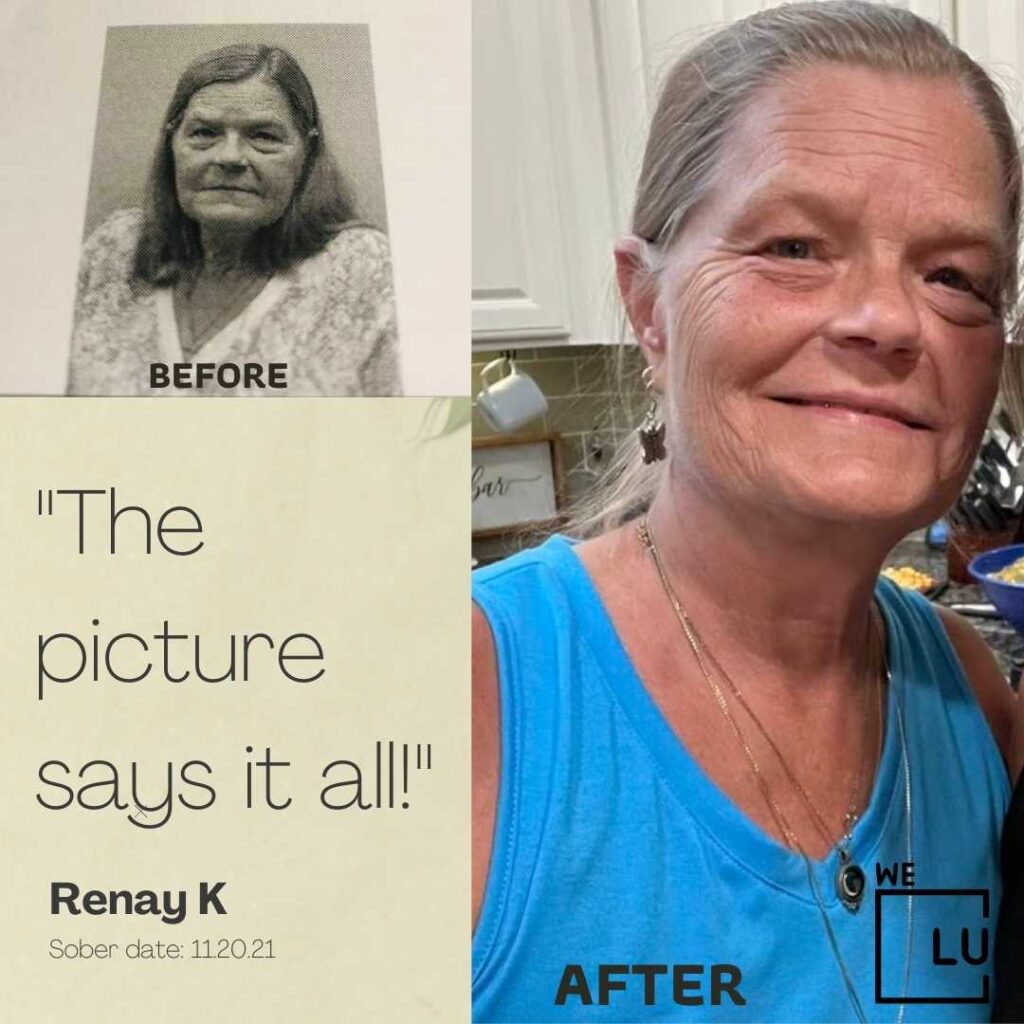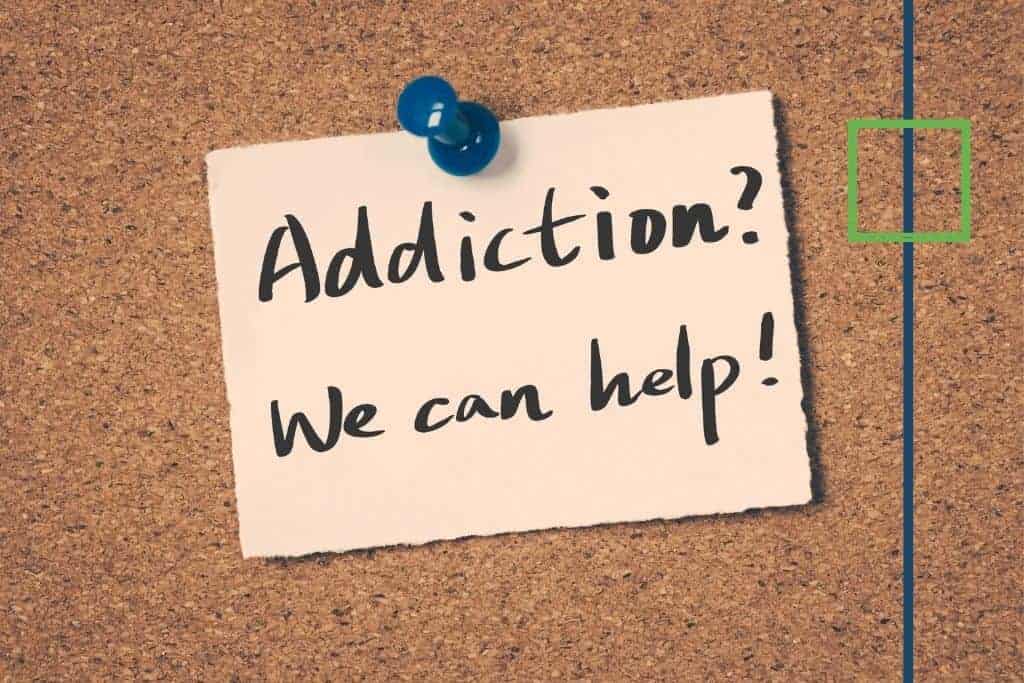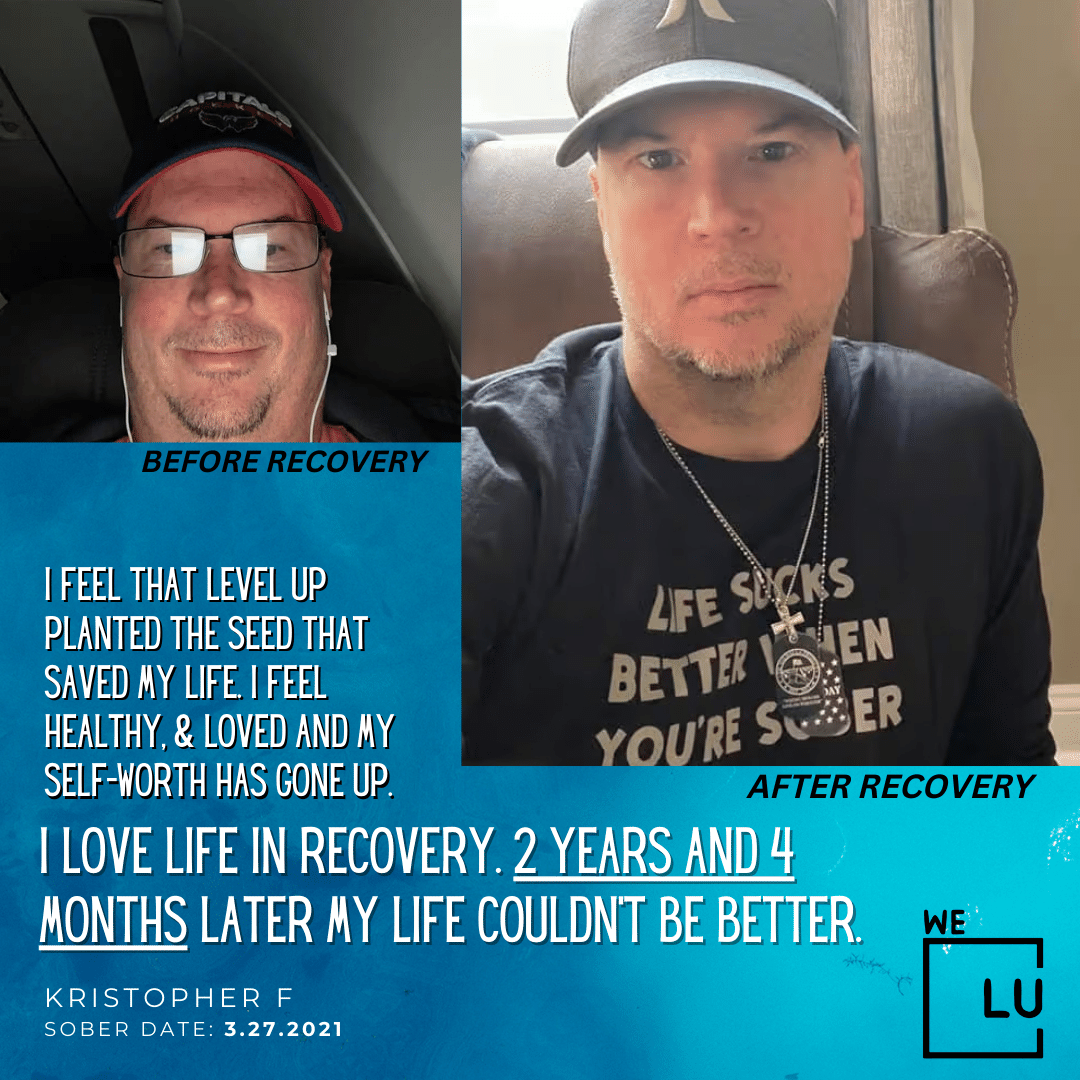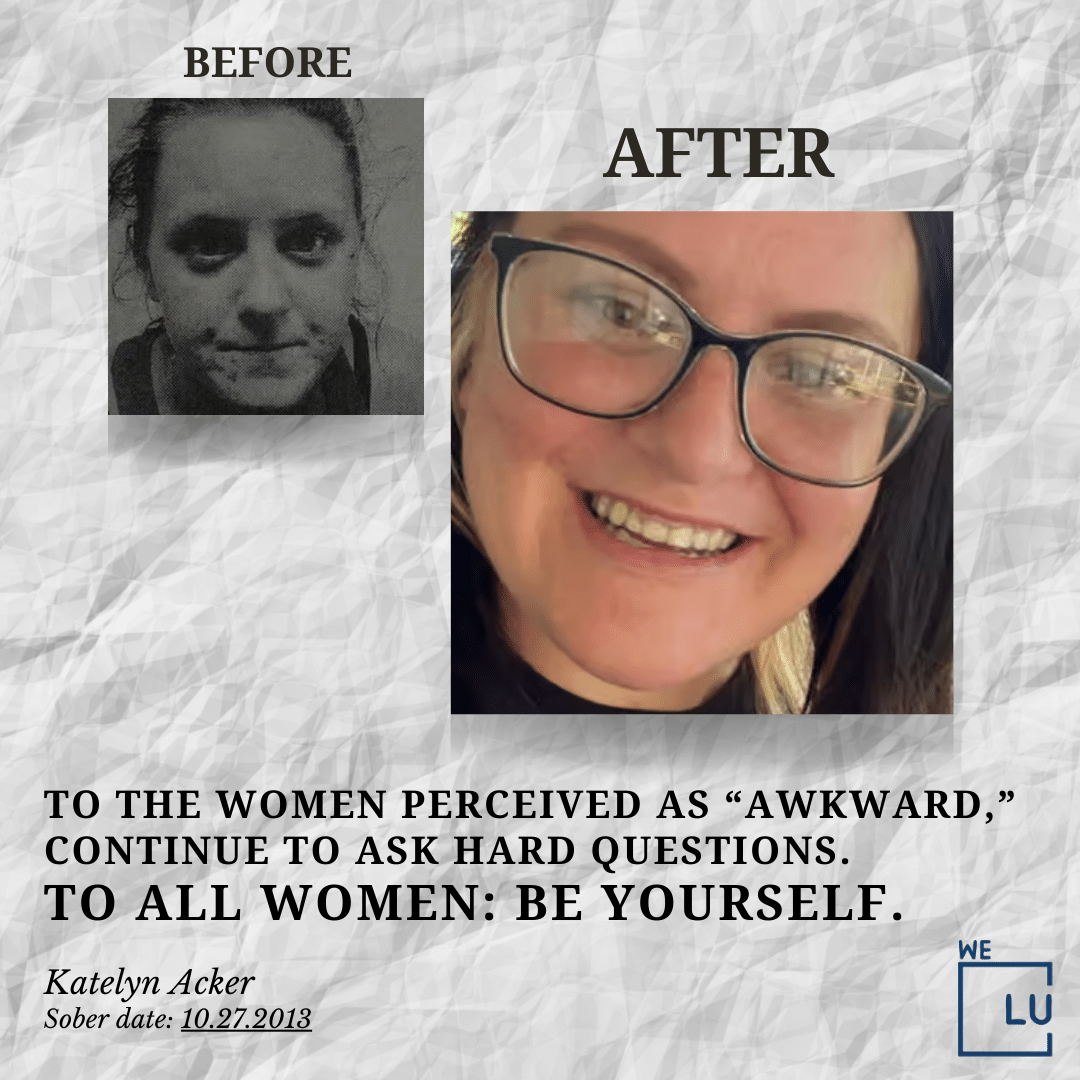Strategies How to Overcome Addiction
Discovering how to overcome addiction can be a unique and intricate path for many. Individual recovery approaches can vary widely. It is essential to consult experts like the We Level Up treatment center advocates for tailored guidance. We can help you mold your recovery tactics to fit your circumstances. Continue reading our strategies on how to overcome addiction.
10 Strategies How to Overcome Addiction
10 Strategies How to Overcome Addiction
Strategies to overcome addiction that you can use for your recovery:
| Strategies to Overcome Addiction | Description |
|---|---|
| Seek Professional Help | Consult with a healthcare professional or addiction specialist who can provide guidance, support, and treatment options tailored to your specific needs. |
| Build a Support Network | Surround yourself with positive, understanding, and supportive individuals who can provide encouragement and accountability during your recovery journey. This network can include friends, family, support groups, or online communities. |
| Develop Coping Skills | Consult with a healthcare professional or addiction specialist who can provide guidance, support, and treatment options tailored to your needs. |
| Create a Structured Routine | Establish a structured daily routine that includes healthy habits and activities, such as regular sleep patterns, nutritious meals, exercise, and engaging in hobbies or interests. This can provide stability and reduce the likelihood of relapse. |
| Identify and Avoid Triggers | Recognize the situations, places, or people that can trigger cravings or temptations. Make a plan to avoid or effectively manage these triggers to minimize the risk of relapse. |
| Practice Self-Care | Learn healthy coping mechanisms and techniques to manage stress, cravings, and triggers. This can incorporate exercise, mindfulness, meditation, and creative outlets. |
| Explore Therapy Options | Consider therapy options such as cognitive-behavioral therapy (CBT), dialectical behavior therapy (DBT), or support groups like Alcoholics Anonymous (AA) or Narcotics Anonymous (NA) to address underlying issues, gain insight, and focus on personal growth. |
| Implement Positive Lifestyle Changes | Make positive adjustments to your lifestyle, such as adopting a healthy diet, engaging in regular physical activity, and avoiding negative influences or environments associated with addictive behaviors. |
| Set Realistic Goals and Celebrate Milestones | Overcoming addiction can be a challenging and ongoing process. Stay committed to your recovery, persist through setbacks, and remember that your journey is unique. Take it one day at a time and stay focused on your goals. |
| Stay Committed and Persistent | Prioritize self-care activities that promote physical, mental, and emotional well-being. This can include proper nutrition, sufficient rest, engaging in enjoyable activities, and nurturing positive relationships. |
Read on for more coping strategies and tips for how to overcome addiction.
Renay K’s How to Overcome Addiction Story
If you are wondering how to overcome addiction, read Renay K’s addiction recovery story. Renay’s and other We Level Up treatment center addiction stories all share a spirit and motivation by individuals in battling and overcoming addiction through professional and peer support.
Renay’s We Level Up Lake Worth addiction story shows you can do it too. She is a recovering alumnus celebrating her sobriety for almost 2 years now.
Sober date: 11.20.21.

Top 5 Tips On How to Overcome Addiction
Overcoming addiction is a challenging process that requires commitment, support, and determination. Here are five tips to help you navigate the journey of overcoming addiction:
- Seek Professional Help: Contact addiction specialists at the We Level Up treatment centers who can provide guidance, assessment, and appropriate treatment options tailored to your needs. They can help create a personalized treatment plan and support your recovery journey.
- Build a Supportive Network: Surround yourself with a supportive network of family, friends, or support groups who understand your struggles and can provide emotional support. Consider joining support groups like Narcotics Anonymous (NA) or seeking therapy to connect with others who have experienced similar challenges.
- Develop Coping Strategies: Identify healthy coping mechanisms to replace drug-related behaviors. Enjoy enjoyable activities, such as exercise, hobbies, or creative outlets. Practice stress-reduction techniques like meditation, deep breathing, or journaling. Learning healthier ways to manage emotions, stress, and triggers can help prevent relapse.
- Set Realistic Goals: Break your recovery journey into smaller, achievable goals. Celebrate each milestone, whether staying sober for a day, completing a week without using, or reaching other milestones you set for yourself. Setting realistic goals and acknowledging your progress can help maintain motivation and a sense of accomplishment.
- Practice Self-Care: Prioritize self-care and focus on rebuilding a healthy lifestyle. Get enough sleep, eat balanced meals, and exercise regularly. Engage in activities that bring you happiness and fulfillment. Taking care of your physical and mental well-being is essential for your recovery and overall well-being.
Remember, everyone’s journey to recovery is different. Be patient and kind to yourself. Relapse may occur for some people, but it does not mean failure. Reach out for help, reassess your strategies, and continue moving forward. With perseverance and support, overcoming addiction and leading a healthier, fulfilling life is possible.

Skip To:
Learn More:
- Inspirational Addiction Recovery Stories. View Real-life Sobriety Stories. Recovery Addicts Stories.
- The Benefits Of Yoga For Addiction Recovery
- Guided Meditation For Addiction Recovery
- Holistic Therapy Program For Addiction Recovery
- Discover Daily Inspiring Addiction Quotes & Inspirational Quotes About Addiction Recovery. Check Out Our Top Drug Addiction Quotes Now!
- We Level Up Addiction Recovery Activities
- Addiction Recovery and Mental Health Tips Videos
- How to Improve Self Esteem And Addiction Recovery Success
- Relationship between Stress and Addiction Recovery Success
- Intervention Services For Addiction & Mental Health Recovery
Incredible Overcoming Addiction Stories
Inspirational addiction stories highlight the importance of getting professional help while finding genuine and sustainable motivation from within. We Level Up’s patient testimonial addiction stories portray how to overcome addiction. Even if you become trapped in a cycle of constant substance dependence, seeking inspiration can help motivate you to get better or stay put in your sober recovery.
Of course, constantly consuming motivational content without concrete steps toward personal improvement can result in a lack of personal agency and disconnection from one’s authentic desires and aspirations to overcome addiction. Don’t hesitate to reach out if you need support. Our addiction hotline is open 24 hours.

Get Your Life Back
Find Hope & Recovery. Get Safe Comfortable Detox, Addiction Rehab & Dual Diagnosis High-Quality Care.
Hotline(844) 597-1011We Level Up Treatment Centers Inspiring Overcoming Addiction Stories
Discover the power of inspirational stories on overcoming addiction. Finding genuine motivation and strategies for overcoming addiction can seem distant. But We Level Up’s patient testimonials show how seeking inspiration can lead to a successful recovery. Learn how to break free from substance dependence and embrace lasting change. Avoid the trap of looking but not taking action to overcome drug addiction. Reclaim your agency and authentic aspirations.
Powerful Testimonials on How to Overcome Addiction to Drugs and Alcohol
| Jason S’s Addiction Recovery Story | Kristopher F’s Addiction Recovery Story | Katelyn Acker’s Addiction Recovery Story |
| A We Level Up Addiction Center alumni. | A We Level Up Lake Worth Addiction Center alumni. | A We Level Up Addiction Center alumni. |
| Sober date: 1.30.2023 | Sober date: 3.27.2021 | Sober date: 10.27.2013 |
 |  |  |
| “I didn’t think it was possible for someone as hopeless and defeated as me to get sober. I didn’t know how. I slowly became honest with myself and others about where my life had taken me. I became willing to do whatever was suggested of me to stay sober for that day. Those were the foundation of my sobriety and are now allowing me to live a life beyond my wildest dreams. I am employable, honest, dependable, and a man of integrity with meaningful relationships, which I never thought possible.” | “What brought me in: I hit rock bottom with divorce paperwork and getting fired. My kids moved out. Enough was enough. I had stopped digging and hit rock bottom. How I feel now: Level Up planted the seed that saved my life. I feel healthy and loved, and my self-worth has gone up. I love life in recovery. 2 years and 4 months later, my life couldn’t be better.” Watch more testimonials and inspirational addiction recovery stories videos. | “To the Women perceived as “aggressive,” continue to be assertive. To the women perceived to be “bossy,” continue leading. To the women perceived as “difficult,” continue telling the truth. To the women perceived as “too much” continue taking up space. To the women perceived as “awkward,” continue to ask hard questions. To the women: BE YOURSELF.” |
Testimonials from the We Level Up Treatment Center network do not guarantee you the same outcome of treatment. Each person’s journey is unique and results may vary.
Get Help. Get Better. Get Your Life Back.
Searching for Accredited Drug and Alcohol Rehab Centers Near You?
Even if you have failed previously and relapsed, or are in the middle of a difficult crisis, we stand ready to support you. Our trusted behavioral health specialists will not give up on you. When you feel ready or just want someone to speak to about therapy alternatives to change your life call us. Even if we cannot assist you, we will lead you to wherever you can get support. There is no obligation. Call our hotline today.
(844) 597-1011Incredible Overcoming Addiction Stories
Inspiration addiction stories highlight the importance of getting professional help while finding genuine and sustainable motivation from within.
We Level Up’s patient testimonial addiction stories portray how to overcome addiction. Even if you become trapped in a cycle of constant substance dependence seeking inspiration can help motivate you to get better or stay put in your sober recovery.
They illustrate how constantly consuming motivational content without taking concrete steps toward personal development can result in a lack of personal agency and a disconnection from one’s authentic desires and aspirations.
How To Overcome Addiction: Steps for Overcoming Addiction
When someone struggles with addiction, it can seem daunting and overwhelming to figure out how to make fundamental, meaningful changes in their life. But that doesn’t mean it’s impossible. There are several steps to overcome addiction that you can take.
- The first step is to get the help and support you need. Whether through therapy, support groups, or both, having a solid network of people around you who understand what you’re going through can make a huge difference in your success.
- The second step is to create a plan for yourself. Make sure it includes specific goals and strategies for achieving those goals. It’s essential to break your plan into smaller, achievable steps to make it easier to stay on track and progress.
- The third step is to become aware of potential triggers or challenges that could set you off course in your journey. This could include avoiding certain people, places, or activities that might tempt you back into using or drinking. Protecting yourself from these triggers can be essential to your recovery plan.
- The fourth step is to learn more about addiction through books, articles, and other resources. This will give you a better understanding of why you’re struggling with addiction and what steps you can take to overcome it.
Finally, don’t forget to take the time to celebrate your successes, no matter how small. This will help you stay motivated and keep progressing in your recovery journey.
No one said overcoming addiction was easy, but taking it one step at a time and remaining committed to your plan is possible. There are countless inspiring alcohol and drug addiction stories. For some, adderall addiction stories stand out from people who have overcome addiction. Use our addiction stories to motivate your journey. With some dedication, you can make lasting changes in your life.
Remember: You can get through this and create a better life. Don’t give up! Seek out the help and resources available, create a plan, and take it one day at a time. You can do this.
Tips On How To Overcome Addictions
Overcoming addiction is a challenging journey that requires dedication, commitment, and a well-rounded approach. Whether the addiction is related to substances, behaviors, or even technology, here are some valuable tips to help you or someone you care about break free from its grip:
15 Tips On How To Overcome An Addiction
- Recognize and Accept: The first step towards overcoming any addiction is acknowledging its presence and accepting that it’s a problem. Denial can hinder progress, so be honest with yourself about the extent of the addiction.
- Seek Professional Help: Addiction is a complex issue that requires professional guidance. Therapists, counselors, or support groups specialized in addiction can provide tailored strategies and coping mechanisms.
- Set Clear Goals: Establish specific, achievable goals for your recovery. These goals will give you a sense of purpose and direction, helping you stay motivated throughout the journey.
- Build a Support System: Surround yourself with a strong support network of friends, family, or support groups. Their encouragement, understanding, and accountability can significantly impact your recovery.
- Identify Triggers: Pinpoint the situations, emotions, or environments that trigger your addictive behavior. Developing awareness of these triggers allows you to avoid or effectively manage them.
- Healthy Lifestyle: Adopt a balanced and healthy lifestyle that includes regular exercise, nutritious eating, sufficient sleep, and stress-reduction techniques like meditation or deep breathing. Physical well-being positively impacts your mental and emotional resilience.
- Replace Negative Habits: Replace addictive behaviors with positive and constructive habits. Engage in hobbies, activities, or interests that bring joy and a sense of accomplishment.
- Cognitive Behavioral Therapy (CBT): CBT is a practical approach that helps you recognize and modify negative thought patterns and behaviors. It equips you with tools to cope with cravings and make healthier choices.
- Mindfulness and Meditation: Mindfulness can enhance your self-awareness and help you manage cravings. Meditation can improve your ability to stay present and reduce anxiety.
- Time Management: Fill your schedule with meaningful activities to minimize idle time. Boredom can often lead to relapse, so staying engaged can be a powerful deterrent.
- Celebrate Progress: Acknowledge and celebrate even small achievements along your journey. Positive reinforcement can boost your self-esteem and motivation to continue.
- Educate Yourself: Learn about addiction, its effects on the brain, and the recovery process. Understanding the science behind addiction can empower you to make informed choices.
- Avoid High-Risk Situations: Steer clear of people, places, or situations that tempt you to indulge in addictive behavior. Create new routines that minimize exposure to triggers.
- Practice Patience: Recovery is a gradual process with ups and downs. Be patient with yourself and understand that setbacks are a natural part of the journey.
- Relapse Plan: Despite your best efforts, relapses can occur. Develop a relapse prevention plan with your therapist or counselor to know how to respond if you fall into addictive behavior.
Remember, overcoming addiction is a unique and personal experience. It’s okay to ask for help; seeking professional guidance is a sign of strength, not weakness. You can break free from addiction and build a healthier, fulfilling life with the right strategies, support, and determination.
First-class Facilities & Amenities
World-class High-Quality Addiction & Mental Health Rehabilitation Treatment
Rehab Centers TourRenowned Addiction Centers. Serene Private Facilities. Inpatient rehab programs vary.
Addiction Helpline(844) 597-1011Proven recovery success experience, backed by a Team w/ History of:
15+
Years of Unified Experience
100s
5-Star Reviews Across Our Centers
10K
Recovery Success Stories Across Our Network
- Low Patient to Therapist Ratio
- Onsite Medical Detox Center
- Comprehensive Dual-Diagnosis Treatment
- Complimentary Family & Alumni Programs
- Coaching, Recovery & Personal Development Events
How Long Does It Take To Overcome An Addiction
The timeline for overcoming addiction varies widely and is influenced by multiple factors, including the type of addiction, individual circumstances, the level of support, and the chosen treatment approach. There’s no one-size-fits-all answer to how long it takes to overcome an addiction, as recovery is a unique and ongoing process.
For some individuals, overcoming addiction might involve a detoxification phase, usually lasting from a few days to a couple of weeks, depending on the substance. However, detox is just the initial step and doesn’t mark the complete recovery from addiction. The real challenge lies in addressing the psychological, emotional, and behavioral aspects that contribute to addictive behavior.
Rehabilitation programs, therapy, counseling, and support groups are crucial in recovery. These interventions can span several months to a year or more, helping individuals learn coping mechanisms, develop healthier habits, and gain the skills needed to navigate life without succumbing to addiction.
It’s important to understand that addiction recovery is a lifelong commitment. While significant progress can be made in the first year of treatment, maintaining sobriety and preventing relapse requires ongoing effort, self-awareness, and a robust support system. Many people find that remaining connected to support groups, therapy, and other recovery resources, even after completing a formal program, is beneficial for long-term success.
Ultimately, the journey to overcome addiction is highly individual, with no fixed timeline. It’s a process that demands patience, perseverance, and a willingness to work on personal growth and well-being continuously. While the road may be challenging, the rewards of a healthier, addiction-free life are immeasurable and well worth the effort.
For inspiration and motivation, find powerful addiction quotes at:
Coping Strategies For Overcoming Drug Addiction & Managing Addiction Cravings
Breaking free from drug addiction and managing cravings is a challenging yet achievable endeavor requiring comprehensive coping strategies. These approaches help individuals navigate the difficult path of recovery and empower them to regain control of their lives. Here are some effective coping strategies for overcoming drug addiction and managing addiction cravings:
- Seek Professional Guidance: Enlist the support of addiction specialists, therapists, or counselors who can tailor a treatment plan to your unique needs. Their expertise provides valuable insights into triggers and coping mechanisms.
- Build a Strong Support Network: Surround yourself with family, friends, and support groups who understand your struggles and provide encouragement. Open communication can offer emotional relief and a sense of belonging.
- Cognitive Behavioral Therapy (CBT): Engage in CBT to identify and reframe negative thought patterns and behaviors contributing to addiction. This technique equips you with practical skills to manage cravings and make healthier choices.
- Mindfulness and Meditation: Practice mindfulness techniques to stay present and manage stress. Meditation can help you observe cravings without acting on them, enhancing your self-control.
- Healthy Lifestyle Choices: Prioritize regular exercise, balanced nutrition, and sufficient sleep. Physical well-being strengthens your resilience and diminishes the impact of cravings.
- Engage in Meaningful Activities: Pursue hobbies, interests, or creative outlets that bring joy and a sense of accomplishment. Keeping busy reduces idle time, which can trigger cravings.
- Distraction Techniques: When cravings strike, divert your attention by engaging in activities you enjoy, such as reading, art, or spending time with loved ones.
- Practice Relaxation Techniques: Deep breathing exercises, progressive muscle relaxation, and other relaxation techniques can help reduce stress and anxiety, which often fuel cravings.
- Create a Relapse Prevention Plan: Develop a clear plan with your therapist to address potential triggers and cravings. Having a strategy in place can empower you to stay strong in challenging moments.
- Celebrate Small Wins: Acknowledge and celebrate every milestone, no matter how small. Recognizing your progress boosts your confidence and motivation to continue.
- Avoid High-Risk Situations: Steer clear of people, places, or circumstances associated with drug use. Changing your environment minimizes the likelihood of encountering triggers.
- Practice Self-Compassion: Be patient with yourself and practice self-compassion. Recovery is a journey, and setbacks are a natural process.
- Stay Informed: Educate yourself about addiction, its effects on the brain, and the science behind cravings. Understanding the mechanisms at play can empower you to combat cravings effectively.
- Utilize Hotlines and Support Resources: Contact addiction helplines or support groups in intense craving. Talking to someone who understands can provide immediate relief.
Remember that overcoming drug addiction and managing cravings is a gradual process that requires commitment and persistence. Every step you take towards recovery is a testament to your strength and determination to lead a healthier, more fulfilling life.
Discover songs about overcoming addiction
When considering how to overcome addiction, powerful songs can be uplifting. Enjoy our top 10 songs about overcoming addiction list. We selected a few notable songs that touch on overcoming addiction. Let us know what are your top overcoming addiction songs.
- “Not Afraid” by Eminem
- “Sober” by Pink
- “Rehab” by Amy Winehouse
- “We Don’t Talk Anymore” by Charlie Puth ft. Selena Gomez
- “The A-Team” by Ed Sheeran
- “Fly Away From Here” by Aerosmith
- “Chandelier” by Sia
- “Under the Bridge” by Red Hot Chili Peppers
- “Breaking the Habit” by Linkin Park
- “Wings to Fly” by Christina Aguilera
These songs depict personal struggles, growth, and overcoming addiction. Always remember that seeking professional help and support is crucial if you or someone you know is dealing with addiction.
Prayers for overcoming addiction
When considering how to overcome addiction, spiritual prayers can be uplifting. We hope you enjoy our top 3 prayers for overcoming addiction. Here are the most inspirational prayers that we found for overcoming addiction:
- Prayer for Strength:
“Dear God, I come before you humbly, acknowledging my weaknesses and struggles with addiction. I ask for your strength to overcome this battle, to resist temptation, and to find healing and renewal in your love. Grant me the courage to seek help and the perseverance to keep fighting. In your name, I pray, Amen.” - Prayer for Courage:
“Dear Lord, addiction has taken control of my life, and I feel powerless against it. Grant me the courage to face my fears, confront the underlying issues contributing to my addiction, and take the necessary steps toward recovery. Help me find solace in your guidance and the support of loved ones. In your mercy, I seek freedom from this bondage. Amen.” - Prayer for Healing:
“Loving God, I lift my brokenness to you, knowing you are a God of healing and restoration. I surrender my addiction before you and ask for your merciful touch on my mind, body, and soul. Grant me the strength to let go, forgive myself and others, and embrace a life of sobriety and wellness. Heal me from the inside out, Lord. In your grace, I find hope. Amen.”
Remember, prayer can be a powerful tool in overcoming addiction, but it should be complemented with professional help, support groups, and other practical steps toward recovery.
Benefits Of Seeking Professional Help For Addiction Recovery
When it comes to overcoming addiction, professional help can make all the difference in ensuring long-term success. Professionals can provide specialized treatment and support, help you develop healthy coping mechanisms, and set realistic, achievable goals to keep you on track.
Seeking professional help can also provide a sense of accountability that can be difficult to find elsewhere. By engaging in therapy or support groups, you’ll have someone who will hold you accountable for your progress and offer guidance when needed. This can motivate you to stay on track and follow your recovery plan.
Finally, professional help can provide invaluable insight into why you’re struggling with addiction in the first place. You can explore underlying issues that might have caused or contributed to your addiction through therapy or support groups. Understanding these issues can be critical in addressing them and achieving lasting recovery.
There are countless benefits to seeking professional help regarding addiction recovery. If you’re serious about overcoming your addiction, don’t hesitate to ask for the help and support you need. You deserve to have a better life free from addiction.
Take the first step today – seek professional help and build the life you’ve always wanted. You can do it! Good luck on your recovery journey.
How To Find Support For Addiction Recovery
Finding a solid support system is critical to successful addiction recovery. It can provide much-needed guidance, encouragement, and accountability throughout your journey. But how do you find the right type of support?
The first step is to reach out to people in your life who are willing and able to offer help. This could include friends, family, or even a therapist. Talking openly about your challenges can be incredibly helpful and provide much-needed relief from the stress of addiction recovery.
The second step is to connect with other people who are also trying to overcome addiction. Support groups and online communities can be great resources for finding like-minded individuals who understand what you’re going through.
The third step is to seek out professional help from addiction specialists. This could include therapists, doctors, or counselors specializing in addiction recovery. They can provide the necessary tools and resources to stay on track with your recovery plan.
Finally, don’t forget to take care of yourself. Self-care is critical to addiction recovery and can help you stay focused, motivated, and positive.
Finding support for addiction recovery is crucial to your success. Take the time to reach out, connect with others, and seek professional help when needed – these steps can make all the difference in helping you achieve lasting sobriety. Good luck!
Ways To Stay Motivated During Alcohol Addiction Recovery
Overcoming alcohol addiction is a transformative journey that requires unwavering determination, professional guidance, and a supportive network. Acknowledging the problem and seeking help are pivotal first steps. Detoxification, often supervised by medical experts, addresses physical dependence, but the true challenge lies in addressing the psychological and behavioral aspects. Therapy, counseling, and support groups play vital roles in helping individuals understand triggers, develop coping strategies, and rebuild their lives. Patience and resilience are essential, as recovery is an ongoing process with ups and downs. Overcoming alcohol addiction empowers individuals to regain control, rediscover purpose, and embrace a healthier, alcohol-free future.
Staying motivated throughout addiction recovery is essential to staying on track with your recovery plan. But motivation can be complex, especially when facing many challenges and changes. Fortunately, there are ways you can stay motivated during the process.
The first way is to set small, achievable goals. This can give you a sense of progress and motivate you to keep going.
The second way is to practice mindfulness and gratitude every day. Taking time to appreciate the present moment and all that it offers can help to maintain a healthy attitude and outlook throughout recovery.
The third way is to connect with others in recovery and share your story. Talking openly about your struggles can be a great source of support and motivation, especially from someone who understands what you’re going through.
The fourth way is to reward yourself for the progress made. Celebrating milestones, big or small, can motivate you to continue moving forward with your recovery.
Finally, remember that relapse doesn’t have to mean failure. When setbacks occur, take a step back and assess what went wrong. This can help you make necessary adjustments and return to your recovery plan.
Staying motivated during addiction recovery is essential for achieving and maintaining sobriety. Use these tips to help you stay on track and, most importantly, never give up.
Tips For Maintaining A Healthy Lifestyle After Addiction Recovery
Maintaining a healthy lifestyle after addiction recovery can feel like an overwhelming challenge. But it’s essential for long-term sobriety and overall well-being. Here are some tips to help you stay on track with your new healthy lifestyle.
The first tip is to build a routine that works for you. This could include walking every morning, eating regular meals, or scheduling time for yourself each week. Establishing a routine can provide structure, consistency, and accountability.
The second tip is to focus on self-care. This could include meditation, yoga, or doing something you enjoy daily. Ensuring you care for yourself can help reduce stress and keep your motivation high.
The third tip is to limit your exposure to triggers. Find out what makes you crave or relapse and try to avoid those situations as much as possible.
The fourth tip is to create a support system for people who understand addiction recovery. This could include friends, family, or a therapist. Talk openly about your challenges so that you can find the necessary support and guidance throughout your journey.
Finally, don’t forget to be kind and patient with yourself. Sobriety takes time, effort, and lots of practice. Be gentle with yourself and remember that relapse doesn’t mean failure; you must adjust your strategies and try again.
Overcoming Addiction: A Guide For Friends & Family Members
Family members of a person struggling with addiction can often feel helpless or overwhelmed. But there are ways they can support their loved ones during the recovery process. Here’s a guide for friends and family members of someone trying to overcome addiction.
The first tip is to educate yourself about addiction and recovery. This can help you better understand what your loved one is going through and provide insight into how best you can support them.
The second tip is to be patient and understanding with your loved one. Addiction recovery can be long, so remain encouraging and supportive throughout.
The third tip is to create an environment of trust and openness. Talk openly about your concerns and ensure your loved one knows they have your support no matter what.
The fourth tip is to practice self-care. Taking care of yourself can help reduce stress and give you the strength and energy you need to be a supportive family member.
Finally, seek out support for yourself. This could include joining an addiction recovery support group or meeting with a therapist who can guide your journey.
Dealing with a loved one’s addiction can be difficult, but it’s important to remember that you’re not alone. Use these tips to help you provide the best possible support for your loved one as they work on overcoming addiction.
Resources For Addiction Recovery
The recovery process can be long and challenging but doesn’t have to be undertaken alone. Here are some resources to help you on your journey to sobriety.
The first resource is support groups. Joining a group of people with similar struggles can provide invaluable emotional and practical support and a sense of community. Organizations like Alcoholics Anonymous, Narcotics Anonymous, SMART Recovery, and Lifering offer virtual and in-person meetings for those in recovery.
The second resource is therapy. Working with a mental health professional can provide guidance and support throughout recovery. Therapy can also help to address underlying issues that may be contributing to addiction behaviors.
The third resource is online resources. Many websites offer information, advice, and tools for those in recovery, such as SAMHSA’s Substance Abuse and Mental Health Services Administration.
The fourth resource is books and podcasts. Many inspiring books and podcasts are available that provide guidance and motivation for those in recovery.
Finally, don’t forget to contact friends and family when you need support. Sharing your story can be a great source of comfort and understanding.
Recovery can be challenging, but you don’t have to go through it alone. Use these resources to help you stay motivated and on track with your sobriety journey.
World-class, Accredited, 5-Star Reviewed, Effective Addiction & Mental Health Programs. Complete Behavioral Health Inpatient Rehab, Detox plus Co-occuring Disorders Therapy.
CALL(844) 597-1011End the Addiction Pain. End the Emotional Rollercoaster. Get Your Life Back. Start Drug, Alcohol & Dual Diagnosis Mental Health Treatment Now. Get Free No-obligation Guidance by Substance Abuse Specialists Who Understand Addiction & Mental Health Recovery & Know How to Help.





